Buspirone (generic for Buspar®)
FDA Approved
Buspirone (generic for Buspar®)

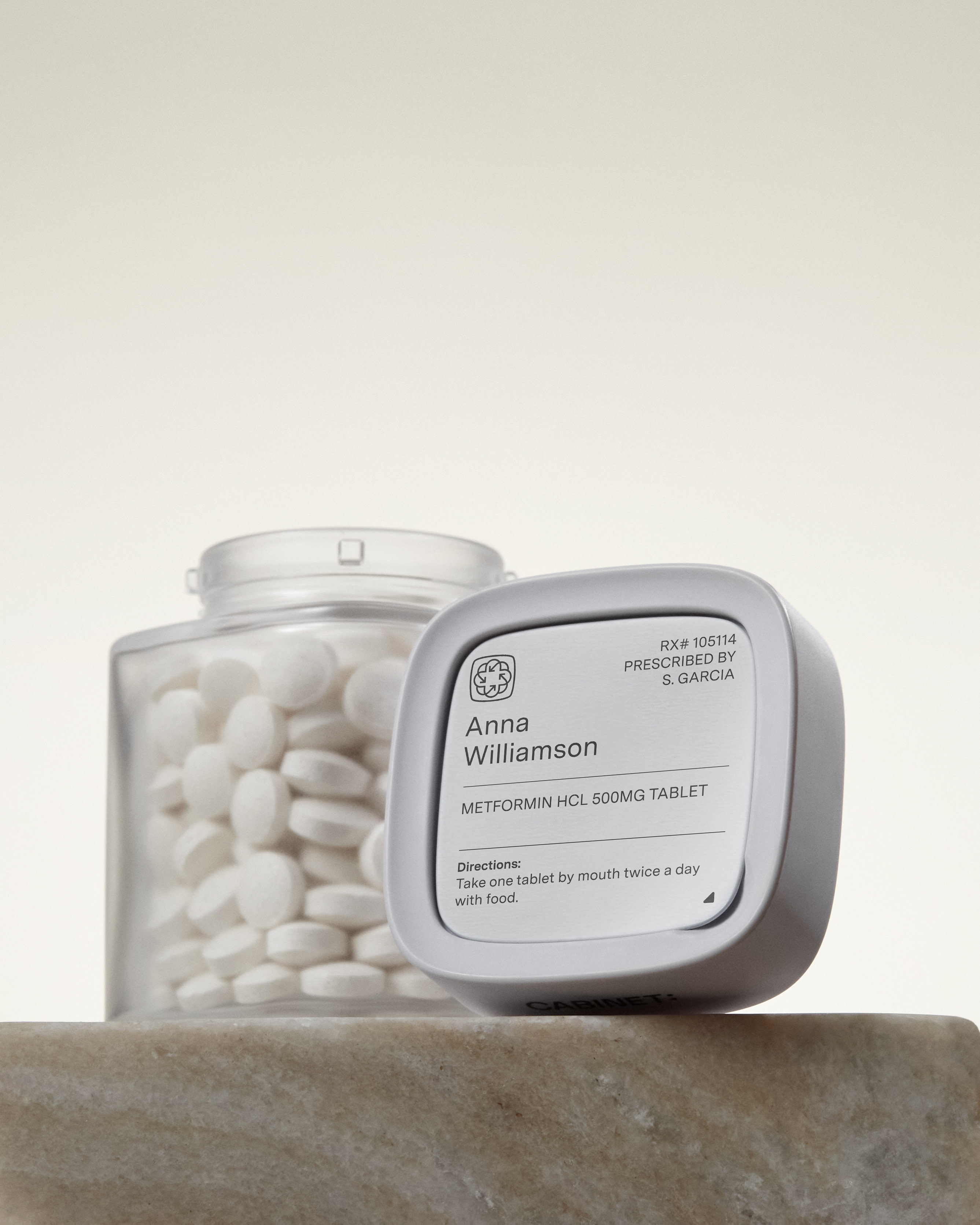

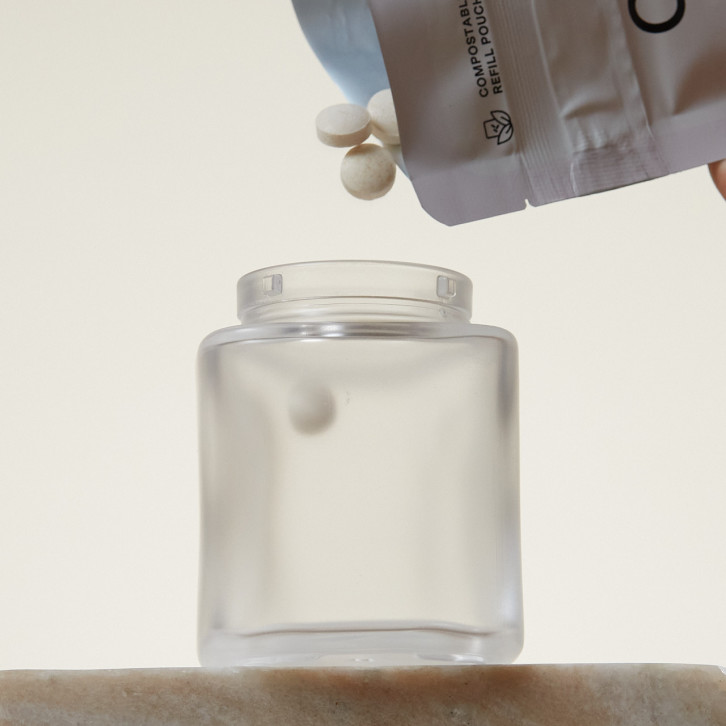

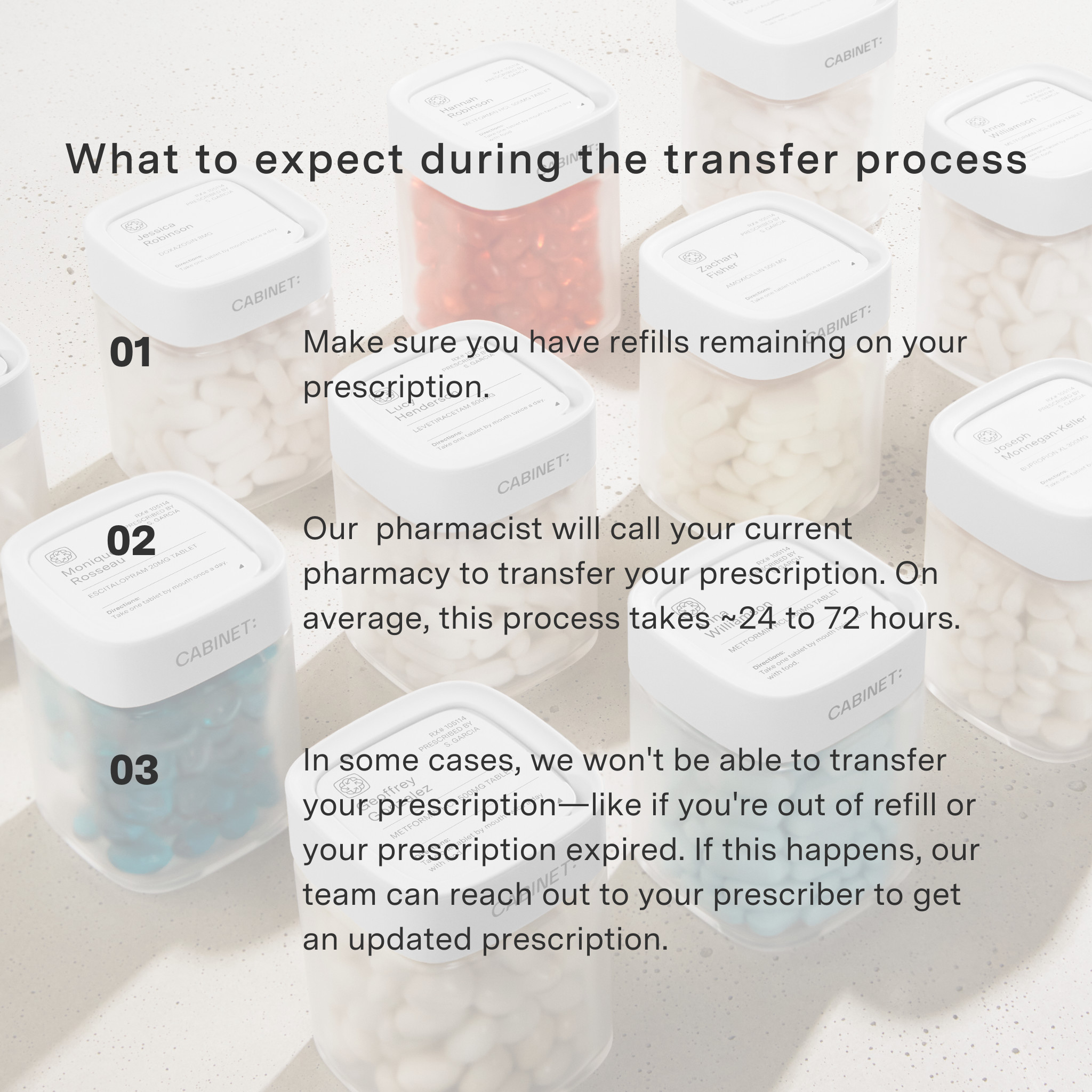
- Buspirone Hydrochloride ()
Generic For Buspar®
How does Cabinet care for you?
Seamless transfer process. Our pharmacist will coordinate with your current pharmacy or provider to transfer your prescription.
Better for the planet. Our pharmacy will send your prescription refills in plastic-free, compostable pouches.
Stress-free refills. Our care team will help manage your refills and prescription renewals, so you don't have to worry about running out of pills.
Satisfaction guarantee. If your care needs aren't being met, our care team is here and eager to help! If you're not satisfied, we can transfer your prescription back to your old pharmacy at any time.
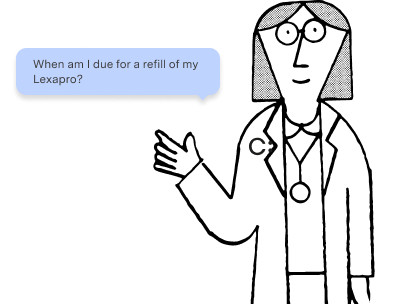
Have a specific
question?
Meet the only sustainable
medicine system
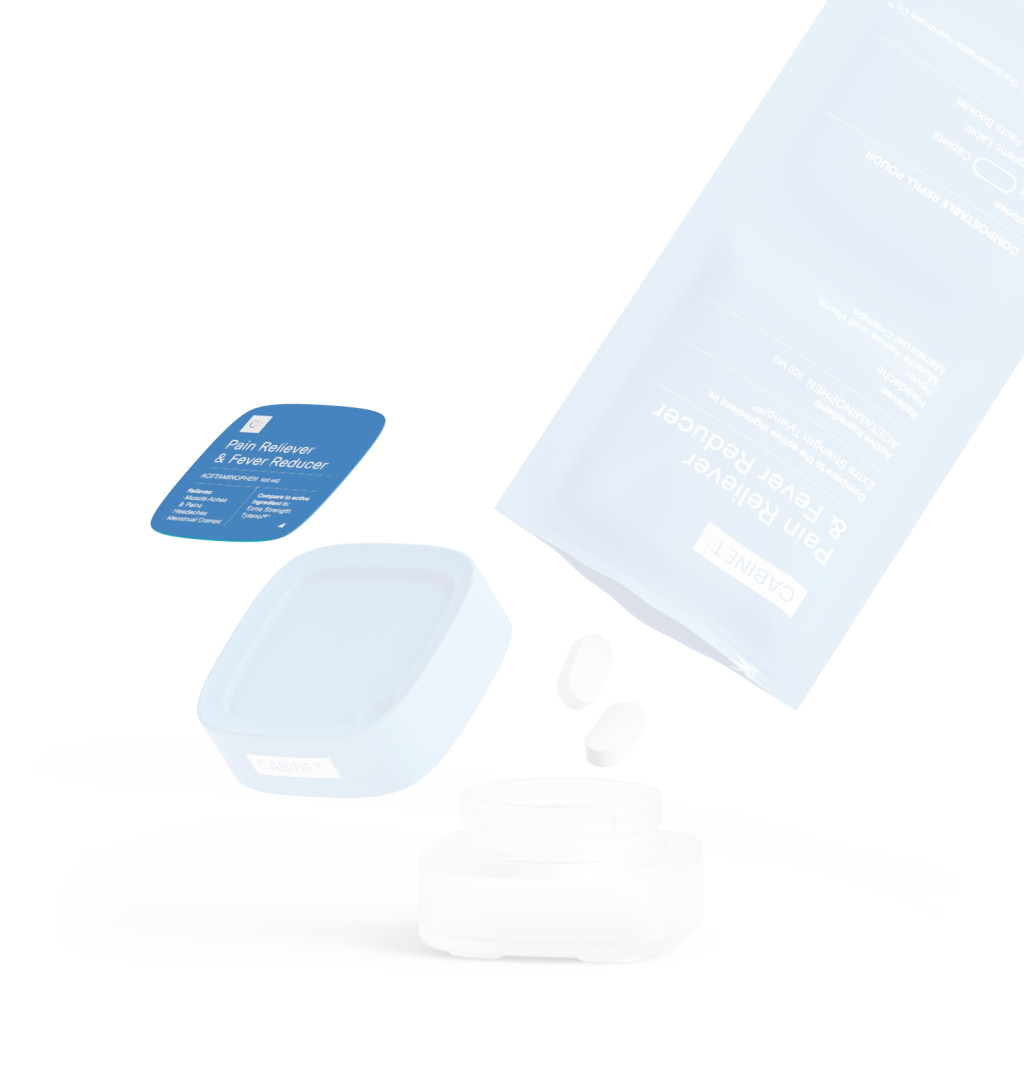
Magnetic label with drug information, lot #, expiration date and QR code to scan for refills. Fully recyclable and made from galvanized steel.
Color coded and child resistant cap with medicine category label.
Frosted, shatter-tested glass medicine bottle, made from 100% recyclable materials.
100% industrial compostable refill pouches keep medicine as fresh and safe as plastic medicine bottles.



